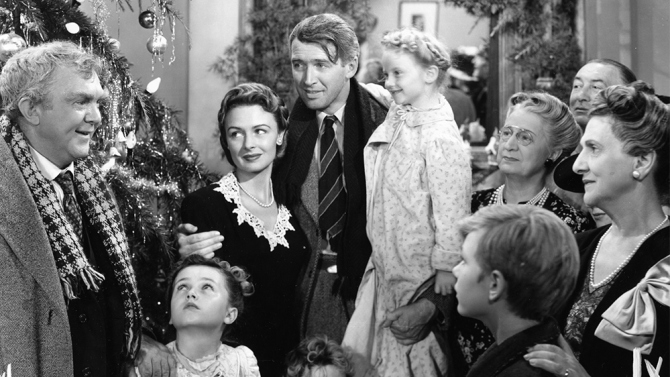
In 1998, Professor John Noakes of Franklin and Marshall wrote a piece entitled, Bankers and Common Men in Bedford Falls: How the FBI Determined That “It’s a Wonderful Life” was a Subversive Movie. In it, he revealed that when the movie was released in 1947, the FBI considered it full of communist propaganda.
From a Franklin and Marshall press release at the time…
“The FBI tried to analyze the content of movies in order to find evidence that Hollywood communists were trying to put propaganda into movies,” explained John Noakes, F and M assistant professor of sociology. “They had been keeping Hollywood under surveillance for several years, keeping track of people’s affiliations, who ate lunch with whom, and who was sympathetic to communist causes. Their reasoning was that if you were either a communist or known to consort with communists, then you might put communist propaganda into your films.”
In searching for subversive frames in Hollywood films, the FBI set up three categories of “common devices that were used to turn non-political pictures into carriers of political propaganda.” These devices included smearing values or institutions judged to be particularly American, such as wealth, free enterprise and the profit motive; glorifying values or institutions judged to be particularly anti-American, such as failure or the triumph of the common man; and making casual references to current events that belittled American political institutions.
“According to the FBI, “It’s A Wonderful Life” fit into the first two categories,” said Noakes.
The casting of Lionel Barrymore as a “scrooge-type” resulted in the loathsome Mr. Potter becoming the most hated person in the film. According to the official FBI report, “this was a common trick used by the communists.”
And, the triumph of George Bailey (Jimmy Stewart) represented the triumph of the common man, thus satisfying the second condition.
“What’s interesting in the FBI critique is that the Baileys were also bankers,” said Noakes. ” and what is really going on is a struggle between the big-city banker (Potter) and the small banker (the Baileys). Capra was clearly on side of small capitalism and the FBI was on the the side of big capitalism. The FBI misinterpreted this classic struggle as communist propaganda. I would argue that ‘It’s a Wonderful Life’ is a poignant movie about the transition in the U.S. between small and big capitalism, with Jimmy Stewart personifying the last hope for a small town. It’s a lot like the battle between Home Depot and the mom and pop hardware store.”
Perhaps director Frank Capra should have changed the final line to “Every time a bell rings, J. Edgar Hoover gets a new dress!”
